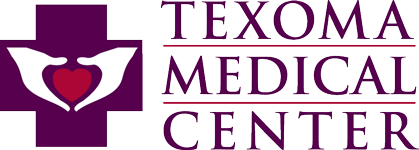Treating Conditions Affecting the Brain, Spinal Cord and Nervous System
Neurological rehabilitation therapists at Texoma Medical Center address physical and cognitive impairments that result from conditions affecting the brain, spinal cord and peripheral nervous system. Our treatments may include physical, occupational and/or speech therapy.
Our neurological rehabilitation therapists are highly skilled, carrying high-level training and certifications, including:
- Certified Stroke Rehabilitation Specialists
- LSVT® BIG
- Neuro-Developmental Technique
- The only board-certified specialist in Neurologic Physical Therapy in Grayson County
Neurologic Conditions We Treat
Conditions that benefit from neurological rehabilitation include, but are not limited to:
- Parkinson’s Disease
- Cerebrovascular disease
- Stroke
- Epilepsy and other seizure disorders
- Vestibular dysfunction
- Dizziness
- Vertigo
- ALS
- Myopathy
- Transverse Myelitis
- Anoxic brain injury
- Bell’s Palsy
- Guillain-Barré Syndrome
- Neuromuscular diseases (Muscular Dystrophy, Multiple Sclerosis, Myasthenia Gravis, peripheral nerve disorders)
- Hemiplegia
- Brain aneurysms
- Cerebral Palsy
- Alzheimer’s Disease
- Traumatic brain injury/concussion
- Spinal cord injury/disease
Get a Physician Referral
If you need a referral to a rehabilitation therapist or other physician at Texoma Medical Center, call our free physician referral service at 1-903-416-3627.
Stroke Rehabilitation
The rehabilitation team helps individuals whose functional skills have been limited by an illness or injury such as stroke. Rehabilitation goals for patients affected by stroke focus on:
- Increasing self-care skills
- Improving psychological adjustment
- Improving self-image
- Improving mobility, health and independence
- Maximizing the ability to enjoy life
- Educating the patient and family
- Preventing secondary complications and secondary stroke
Treatment and services include:
- Training in activities of daily living (eating, bathing, dressing, etc.)
- Speech-language therapy
- Swallowing skills assessment and management
- Bowel and bladder training
- Family conferences
- Patient and family education
- Self-medication training
- Wheelchair positioning and mobility training
- Community re-entry activities
Neurologic Treatments and Services
The rehabilitation team helps individuals to consistently meet and exceed national benchmark standards. Physical, occupational and speech-language therapy treatment interventions are aimed at improving movement, restoring function and preventing disability associated with a variety of neurological conditions. For some, neurological rehabilitation can be an alternative to surgery and/or pain medication.
Depending on the condition being treated, physical and occupational therapists use a variety of techniques to assist patients, such as:
- Stroke support group
- Parkinson’s support group therapy
- LSVT BIG and LSVT LOUD
- Neuromuscular re-education including neurodevelopmental techniques and proprioceptive neuromuscular facilitation
- Range of motion exercises
- Constraint-induced movement therapy
- Taping
- Therapeutic exercise
- Gait and balance training
- Sensory stimulation
- Electrical stimulation including Bioness
- Durable medical and adaptive equipment prescription/training
- Pain management
- Fall prevention
- Household and community mobility and accessibility
- Return-to-work programs
- Cognitive training (problem-solving, memory strategies, attention, organization, scheduling, money management, medication management)
- Dysphagia therapy
- Dysarthria therapy
- Aphasia therapy
- Extremity positioning
- Orthotic and prosthetic prescription
- Graded motor imagery
- Wheelchair assessments
